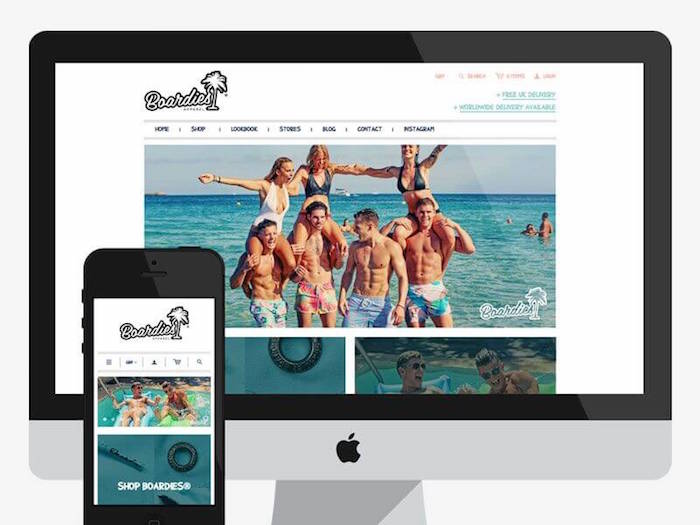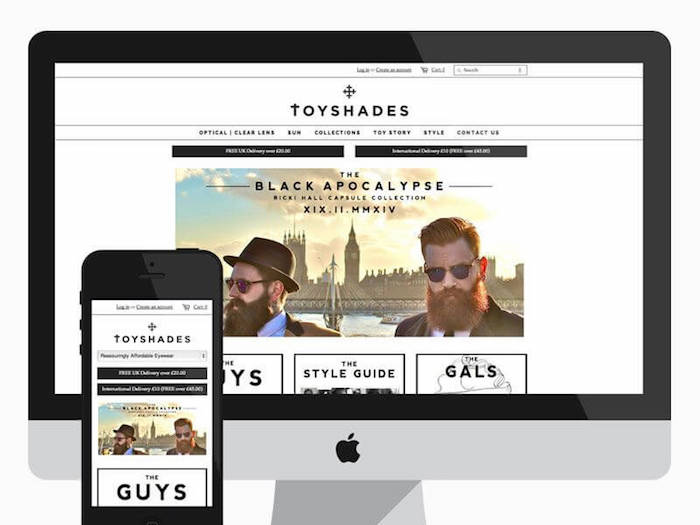7 Steps to Starting Your Business in 2016
Always had a great business idea? If you're stuck on where to start, here is everything you'll need to know to make this the year you begin.
Always had a great business idea? If you're stuck on where to start, here is everything you'll need to know to make this the year you begin.
This is the year, we can feel it. This is the year you finally turn that business dream into reality by taking some small, achievable steps towards your goal.
We're a startup ourselves, matching businesses with the lawyers they need. This brings us into contact with a lot of entrepreneurs and business owners, which is what led to us compiling this guide.
While we can't teach you everything, we can point you towards resources that will get you set up with everything you need right at the beginning, from a logo design to a website to getting your accounting and legals sorted.
With that in mind, let's get started with the first step, which is refining the idea itself.
It’s so easy to start with an idea for a product that you think people want. To spend months, sometimes years, making this product perfect, without ever interacting properly with the hypothetical customer. The Lean Startup describes a method that helps you to avoid wasting time developing a product or service that nobody uses.
A core part of the approach is build-measure-learn: BUILD a prototype, MEASURE how customers react, LEARN and change the product. This means that before you start your business, you have strong data on whether or not it is viable.
In theory, this sounds pretty simple. But in reality, it can be a lonely and difficult process.
This is where Escape the City can help. They run the Startup Tribe which will help you learn to take small (but powerful) forward steps, progress through action, build a support network, and map your startup escape plan. As they say here:
"Are you tired of thinking about business ideas and ready to start building?So many people talk about starting businesses, but so few act on their ambitions. It’s understandable: startups can seem scary, expensive, risky and extremely hard. There’s too much advice out there and so much of it is unhelpful. Even if you think you’re ready to start something — Which books should you read? Who should you talk to? Which methodologies should you apply? It can be overwhelming and confusing.
The Startup Tribe is an intensive introduction to early-stage startups. This is a programme for committed, passionate people who are excited to learn about entrepreneurship by rolling up their sleeves and getting their hands dirty.
How does it work?
The Tribe has been designed with the following principles in mind:
1. ACTION WORKS: We learn best by doing, not by sitting in the classroom. Concepts are important but it’s only when we implement new ideas that we truly understand them.
2. COMMUNITY IS CRUCIAL: Communities give us confidence, hold us accountable, teach us about ourselves, and help us cement new ways of doing and seeing things. 3. WE HAVE THE TOOLS: It has never been cheaper or easier to start a business. With the right tools and guidance we can all build exciting and impactful businesses."

Since finding lawyers for businesses is our specialty, we wrote a thorough guide for entrepreneurs on working with lawyers (without getting ripped off) - it's free and you can check it out here.
For now, we wanted to briefly outline several legal agreements that you might want help with right at the start. If you need a lawyer but don't know where to begin, you can post your job on Lexoo here and within 1 to 2 business days, you'll receive multiple fixed-fee quotes from our hand-picked lawyers.
Shareholders Agreement
Chances are you’ll have at least one co-founder. If you’ve agreed your equity split and formed a company, you’ll need a shareholders agreement.
And not just any off-the-shelf shareholders agreement either. Startups are super high risk, so your vesting needs to be solid in case one of the founders leaves. Startup lawyers specialise in this type of thing.
Also, when it’s time to raise funds, angel investors and VCs will likely insist on a new shareholders agreement, drafted in their favour of course. Having a good startup lawyer on board will help you negotiate the best terms from the outset and keep the playing field level.
Employment Contracts
The first few hires for your startup are critical. Your culture, productivity, even survival depends on getting the right people on board. It will be your biggest expense and the stakes are high.
A good employment contract will protect you if things don’t work out. For startups, an employment lawyer will focus on post-termination rules such as non-compete clauses. Intellectual property (like your code) must be protected and clear boundaries should be set around side projects.
But on the employee side, they’ll expect to have some ‘skin in the game’, which means giving them some equity. This is where employee share options come into play. An employment lawyer normally won’t create the option agreement - use a specialist EMI options lawyer, for this. But any employment lawyer working with startups will know the basics and point you in the right direction.
Commercial Contracts
If you’re outsourcing the development of your technology, website or app, one of the first commercial agreements you’ll need is a contract to cover that development, such as a web development agreement.
Engineers and designers typically supply their own freelance or agency contracts, which protect their interests. And that normally means they’ll try to keep ownership of the code base (i.e. the intellectual property) and simply give you a licence to use it. For startups - built with an exit or sale in mind - this doesn’t fly. Make sure you take ownership of the code. After all, you can’t sell what you don’t own.
This is just one pitfall that startup lawyers look for in commercial contracts, whether it’s a supplier or customer contract, consultancy agreement or your own user terms or software licence. When it’s time to raise VC money or court potential buyers, they’ll examine all your commercial contracts to make sure they’re water tight. Not owning your IP can be a deal breaker.
 Photo credit: Legal Geek
Photo credit: Legal Geek
Virgin StartUp is on a mission to help Britain’s startups be even greater. It’s the not-for-profit Virgin company that offers entrepreneurs startup loans and the key tools they need to succeed.
Apply for startup loan funding ranging from £500 - £25,000 per founder through Virgin StartUp and they’ll match you with a business advisor to help develop your business plan.
Every business that receives funding through Virgin StartUp will continued to be supported by workshops, master classes, peer-to-peer networking and one-to-one mentoring. They match you with an experienced mentor that acts as a sounding board for you entire first year in business.
Since launching two years ago Virgin StartUp has funded close to 1,000 businesses, giving out £8m in the process. Many of these companies have gone on to secure contracts with big businesses and are exported worldwide. To become a Virgin StartUp backed business, learn more here.
Am I eligible?To apply for a loan you should be at least 18 (at the time of your application), a UK legal resident and want to start or expand a new business that’s less than three-years old in England.
How do I apply?Simply register and Virgin Startup will get in touch with you.
How much can I borrow?This will be agreed in the process of your business planning but funding ranges from £500 - £25,000 per co-founder.
What kind of loan is it?The Virgin StartUp loan is a personal loan, which means if four people from the same company apply for a loan, all four are eligible as individuals.
If I receive a startup loan, what are the payback terms?You will be required to pay back the loan within three to five years at an interest rate of 6.19% APR Representative (fixed rate).
What offers do I get if I’m a Virgin StartUp business?In addition to your startup loan, support from one of our business advisers and your Virgin StartUp Mentor, all from Virgin StartUp, The Start Up Loans Company have secured some exclusive business offers. These will provide you with discounts on a number of business products and services that you may find useful when launching your startup. To see how these offers could benefit your business and to redeem, visit the Start Up Loans website.
Will I receive any practical support?Yes. As well as your loan, you will receive business support from your local enterprise agency as well as mentoring to help develop your idea.
When will I be able to receive a startup loan?Virgin Start Up will be able to deliver loans to successful applicants within ten working days of you receiving approval.
How will the loans be handed out?Loans will be paid by cheque.
I’m an international student living in England. Can I apply?Yes, international students living and studying in England can apply, but your UK visa must permit you to work in England, and your business plan must clearly show that you’ll be able to repay your loan during the length of your stay.
What if I don’t have a business plan?If you’re struggling to put a business plan together, worry not. Virgin Startup has templates, courses, mentors and business advisors that can give you a helping hand.
Can I use the loan to buy a franchise?Yes - subject to our normal lending conditions. Check out whichfranchise.com to get ideas about franchising in general.
Is this a grant?No. A grant is a non-repayable fund provided by an individual or an organisation for a particular purpose. Grants are often awarded to non-profit entities, as well as businesses or individuals. Generally, you will not need to pay a grant back, but there is a lot of competition and they are almost always awarded for a specific purpose or project. The difference between a grant and a startup loan is that a startup loan must be repaid.
The story you tell about your business begins with a logo and collateral. When it comes to printing, we love MOO, who make beautiful, expertly crafted business stationery and promotional materials. MOO has quirky products like MiniCards, Square Business Cards, and can print flyers and letterheads too.
All you have to do is upload your own designs or image and apply it to your favorite type of card. You can choose from a variety of materials, like silky Original paper, the four-layer Mohawk Superfine paperstock, or eco-friendly green materials.
You can do the design entirely online by using 99designs, which matches you quickly and easily with talented emerging designers at great prices. A good logo should be timeless, clear, and original. There's an indubitable move towards more simplicity and less distracting elements and as a bonus, companies save on printing by using only one color and no gradients. As a small business owner approaching the branding universe for the first time, you need to understand the psychology and power behind colors & fonts and take a deep dive into the current design trends.
Once you have thought about the values you want to communicate and the style you like, let a professional designer take care of the rest. In 99designs they have over 1 million designers around the globe willing to bring your brand to life.
Finding a developer who's both professional and affordable can be notoriously difficult. Knowing which web platform to build on when you don't know much about coding is also a tricky field to navigate.
We love the work produced by We Make Websites and we also like the way they treat their customers.
They create well-designed and easy to use e-commerce websites that generate sales and are officially the highest rated agency for Shopify in the UK. Past clients include over 400 design-led retailers in fashion, gifts and interiors, as well as large brands like Condor Cycles, Costa Coffee and The Economist Group.
Good design builds trust. This is their speciality. All websites are fully optimised for mobile, tablet and desktop so you are ready for customers coming from all devices. Their websites are also fast, which is crucial for turning visitors in to happy shoppers.
Getting the right message and product on your homepage and elsewhere is crucial. Their clients don't miss merchandising opportunities because, even with a bespoke design, their websites are easy to manage and update.
Here are some websites they've created:



It's tempting to work from home but it can quickly get fairly depressing to be stuck in your pyjamas sitting at your laptop at 11am.
We suggest checking out Huckletree, a shared workspace for London's growing startup community. They've been running a small space in Clerkenwell since 2014 and are expanding to Shoreditch in April, where they'll be home to some of the city's most innovative startups. The team are trying to inspire creativity at work by building a tight community, a balanced working environment and a network of ambitious people.
We're big fans of Xero, which makes accounting more fun and easy than you could imagine. Our CTO Chris says that what he loves about it is the integration feature:
“We integrate with their API to send invoices automatically which makes invoicing a breeze. What I love about it is that it integrates with our bank, so it’s always up-to-date with how much we’ve got in our bank account.”
Xero has a nice little video which explains it well here:
If you need some extra help with your accounts, we recommend checking out Square Mile Accounting - who are located in the heart of London’s tech centre, and provide accounting support for growing businesses and ambitious entrepreneurs. They're a Xero Silver partner, which means they’re not only certified but experienced in helping growing businesses use Xero to help save time and build profits.
They offer the following tips for growing businesses on getting the most out of your accounting assistance:
Staying sane throughout the startup process can sometimes be a challenge but we love the quirky insights and inspiration from Gaping Void. This is one of our favourites.
